-
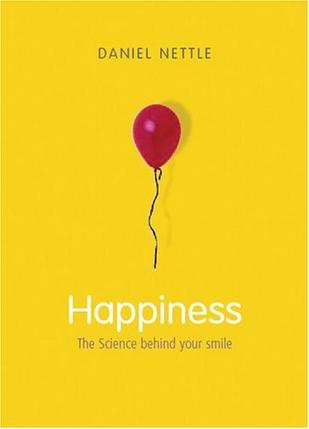
Happiness
What exactly is happiness? Can we measure it? Why are some people happy and others not? And is there a drug that could eliminate all unhappiness? People all over the world, and throughout the ages, have thought about happiness, argued about its nature, and, most of all, desired it. But why do we have such a strong instinct to pursue happiness? And if happiness is good in itself, why haven't we simply evolved to be happier? Daniel Nettle uses the results of the latest psychological studies to ask what makes people happy and unhappy, what happiness really is, and to examine our urge to achieve it. Along the way we look at brain systems, at mind-altering drugs, and how happiness is now marketed to us as a commodity. Nettle concludes that while it may be unrealistic to expect lasting happiness, our evolved tendency to seek happiness drives us to achieve much that is worthwhile in itself. What is more, it seems to be not your particular circumstances that define whether you are happy so much as your attitude towards life. Happiness gives us the latest scientific insights into the nature of our feelings of well-being, and what these imply for how we might live our lives. -
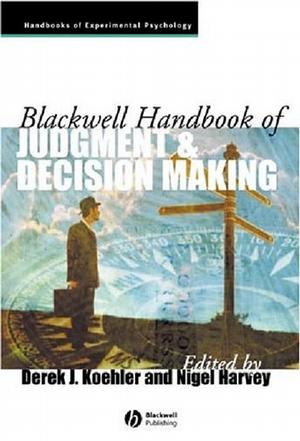
Blackwell Handbook of Judgment and Decision Making (Blackwell Handbooks of Experimental Psychology)
The Blackwell Handbook of Judgment and Decision Making is a state-of-the art overview of current topics and research in judgment and decision making. Chapters are contributed by experts in the field from various disciplines such as psychology, cognitive science, business, and law. The selection of topics reflects current trends and controversies on judgment and decision-making. Each chapter includes an overview of the past followed by current work and current directions in the field.The book:- provides a glimpse at the many approaches that have been taken in the study of judgment and decision making, including bounded rationality, computational modelling, and the heuristics and biases approach- portrays the major findings in the field and covers topics such as probablistic reasoning, hypothesis testing, multiattribute choice, and decision making under risk and uncertainty- presents examinations of the broader roles of social, emotional, and cultural influences on decision making- explores applications of judgment and decision making research to important problems in a variety of professional contexts, including finance, accounting, medicine, public policy, and the law
The Blackwell Handbook of Judgment and Decision Makingis a state-of-the art overview of current topics and research in judgment and decision making. Chapters are contributed by experts in the field from various disciplines such as psychology, cognitive science, business, and law. The selection of topics reflects current trends and controversies on judgment and decision-making. Each chapter includes an overview of the past followed by current work and current directions in the field.The book:- provides a glimpse at the many approaches that have been taken in the study of judgment and decision making, including bounded rationality, computational modelling, and the heuristics and biases approach- portrays the major findings in the field and covers topics such as probablistic reasoning, hypothesis testing, multiattribute choice, and decision making under risk and uncertainty- presents examinations of the broader roles of social, emotional, and cultural influences on decision making- explores applications of judgment and decision making research to important problems in a variety of professional contexts, including finance, accounting, medicine, public policy, and the law -
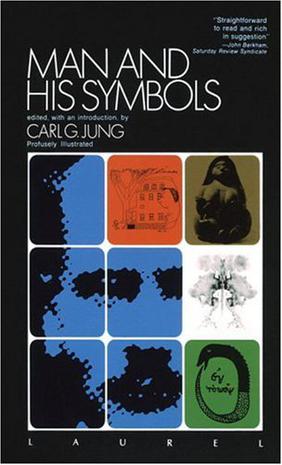
Man and His Symbols
Illustrated throughout with revealing images, this is the first and only work in which the world-famous Swiss psychologist explains to the layperson his enormously influential theory of symbolism as revealed in dreams. -
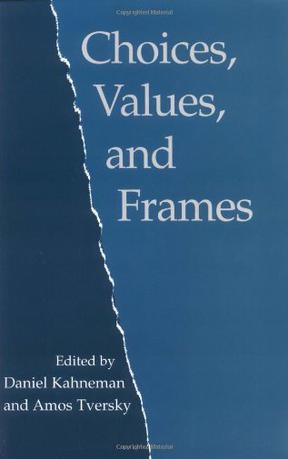
Choices, Values, and Frames
This book presents the definitive exposition of 'prospect theory', a compelling alternative to the classical utility theory of choice. Building on the 1982 volume, Judgement Under Uncertainty, this book brings together seminal papers on prospect theory from economists, decision theorists, and psychologists, including the work of the late Amos Tversky, whose contributions are collected here for the first time. While remaining within a rational choice framework, prospect theory delivers more accurate, empirically verified predictions in key test cases, as well as helping to explain many complex, real-world puzzles. In this volume, it is brought to bear on phenomena as diverse as the principles of legal compensation, the equity premium puzzle in financial markets, and the number of hours that New York cab drivers choose to drive on rainy days. Theoretically elegant and empirically robust, this volume shows how prospect theory has matured into a new science of decision making. -
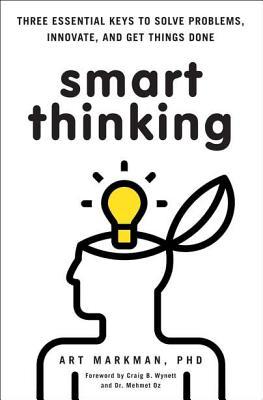
Smart Thinking
Think smart people are just born that way? Think again. Drawing on diverse studies of the mind, from psychology to linguistics, philosophy, and learning science, Art Markman, Ph.D., demonstrates the difference between "smart thinking" and raw intelligence, showing readers how memory works, how to learn effectively, and how to use knowledge to get things done. He then introduces his own three-part formula for readers to employ "smart thinking" in their daily lives. "Smart Thinking" gives readers: *The means to replace self-limiting habits with new behaviors that foster smart thinking *An understanding of the mind itself as well as memory *The ability to define and solve problems by finding and applying relevant knowledge *Ways to present and process information effectively -
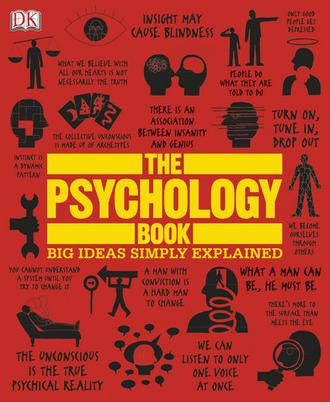
The Psychology Book
Clearly explaining more than 100 groundbreaking ideas in the field, The Psychology Book uses accessible text and easy-to-follow graphics and illustrations to explain the complex theoretical and experimental foundations of psychology. From its philosophical roots through behaviorism, psychotherapy, and developmental psychology, The Psychology Book looks at all the greats from Pavlov and Skinner to Freud and Jung, and is an essential reference for students and anyone with an interest in how the mind works.